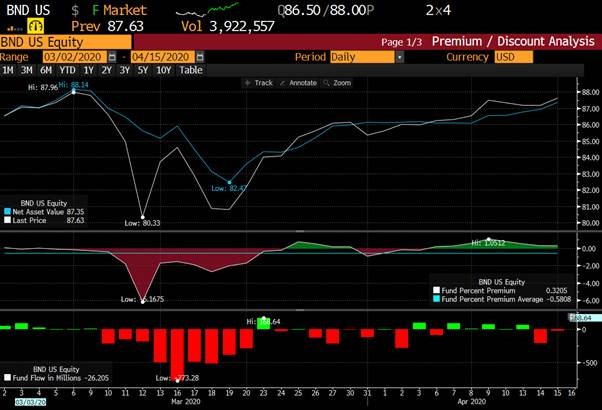Nobody likes catching falling knives but if you have to, you want to come away with the fewest cuts.
As fears about the impact of the coronavirus on the long-term health of the global economy feed into huge movements in share prices, investors are having to try and catch the handle rather than the blade every single day. Fund managers are under extreme pressure, and the instinct in these scenarios is to grab whatever is on offer. There is not the time to make entirely lucid decisions.
Before making a trade, however, investors need to compose themselves and think clearly about securing the best price for a purchase or a sale. This might sound obvious but there is a risk that, as market ferocity ramps up, investors ditch micro-management without appreciating the consequences.
Price sensitive
Failing to focus on bid-offer spreads – the gap between what buyers are willing to pay for a security and what sellers are willing to receive – can be particularly harmful in fast-moving markets. It can significantly affect the price at which an investment is made, eroding an investor’s long-term returns.
In recent weeks, spreads within many asset classes have widened far beyond normal parameters and there is a risk many investors have not woken up to this. Some of the starkest examples have been found in fixed income exchange traded funds (ETFs), largely reflecting low liquidity in certain underlying bonds.
At the same time, rising volatility in bond prices, combined with a dearth of liquidity in corporate bond markets, is affecting the ability of ETF market-makers to eradicate price dislocations relative to the value of the underlying portfolios. They ordinarily do this by buying or selling the underlying bonds at the time they trade the ETF.
Gaps between ETF prices and the net asset value (NAV) of their underlying portfolios emerged last month, with Vanguard’s $55bn (£44bn) total bond market ETF closing at a 6.2% discount to NAV on 12 March, and BlackRock’s $71bn iShares core US aggregate bond ETF registering a 4.43% discount on the same day. In many instances the discounts arise because the ETF reflects market developments before they feed through to individual bond prices.
Vanguard Total Bond market EFT – recent NAV premium / discount history

Source: Bloomberg
Take a moment
A lack of attention to execution methods could mean fund managers find themselves buying assets for a higher price than necessary or selling them for a lower price than what is achievable, harming performance during what is already a testing time for investors.
Yet the effects of wide bid-offer spreads can easily be mitigated by changing the way trading orders are placed. Giving brokers specific prices at which trades should be executed is essential during these rapidly moving markets.
Even those who systematically buy assets as their prices fall, such as arbitrageurs and evidence-based investors, must ensure they are getting the bargain they think they are. Rules around best execution mitigate the potential for securing poor pricing to some degree, but a simple buy order will be executed at the best offer available, even when spreads are at their widest and all of the trading activity is at the bid side.
Using different types of orders, such as limit orders (which specify a price at which a trade must be done) or a fill-or-kill order (which can only be completed at a certain price or will not be fulfilled) can help investors secure vital basis points. This could mean the difference between a tiny nick or a deeper flesh wound from those proverbial knives.
Mark Northway is investment manager at Sparrows Capital











